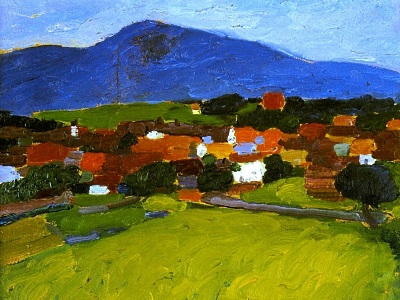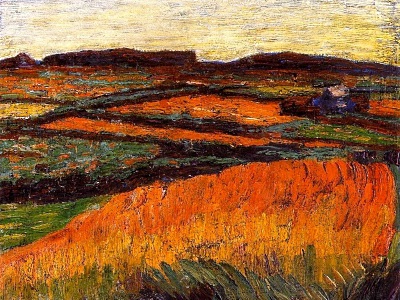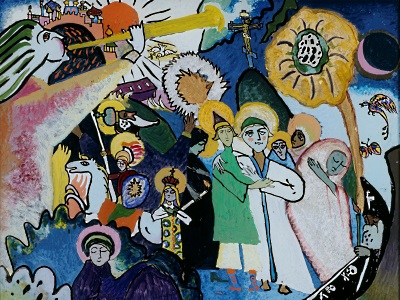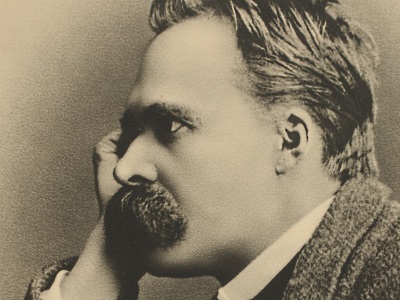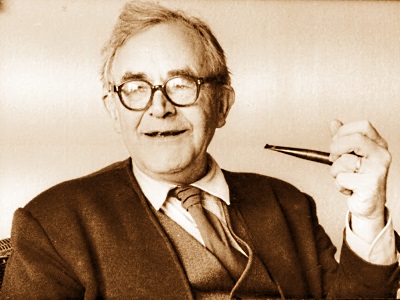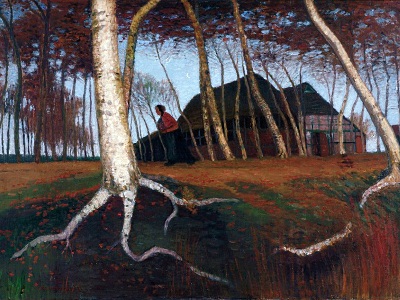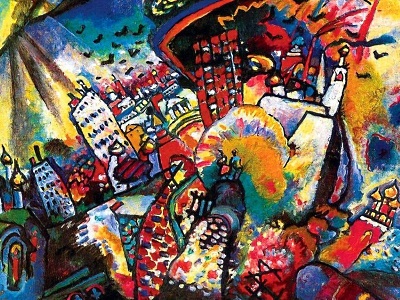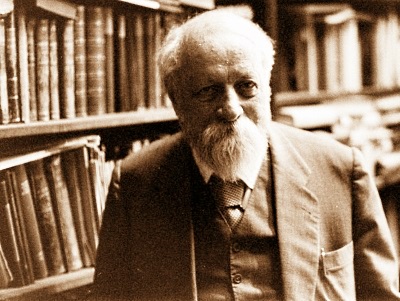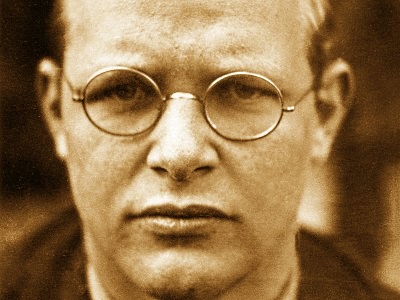We small people must disappear from our own field of vision so that only one question remains in view: “What is happening to God’s Kingdom?” What is going to happen to the injustice of the world situation, which cries out to heaven? How shall God’s Kingdom come? And how can we do away with all distractions so that we come to the cause entrusted to us by the Church?
- Eberhard Arnold, July 1934
Summary
Eberhard Arnold believed in the kingdom of God as a reality on earth and embraced a radical Christianity that put the teachings of the Gospels into practice. Its tenets included believer’s baptism, community of goods, nonviolence, and service to the poor. His thinking was influenced by the example of the early Christian church and by the Anabaptist tradition, one of whose branches his Bruderhof community ultimately merged with.
In 1899, at the age of sixteen, Eberhard experienced an intense religious calling and dedicated himself to a life following Jesus. He began to lead a Bible study and volunteer with the Salvation Army, becoming keenly aware of social inequality and the need for Christians to respond.
Eberhard originally wanted to go into medicine as a practical, compassionate vocation, but following the request of his parents, he studied theology and philosophy at the University of Breslau. This did not lead to the socially respectable career they hoped for, however, as his decision to undergo believer’s baptism necessitated a break with the state church where infant baptism was the norm. Yet it gave him a wide-ranging education and background to his later work as a missionary, lecturer, educator, author, and publisher.
In the discussion groups he and his wife Emmy led in their home, he circled back again and again to the Sermon on the Mount and what it would mean to truly put its teachings into practice. These teachings beckoned him to give up everything he had and live in community with other believers, as the first Christians had done. The kingdom of God, he believed, was not a distant future possibility but – through the power of the Holy Spirit – could be made real and present here on earth.
Eberhard’s convictions led him to the example of the Anabaptist church, which emphasized unity, sharing of possessions, radical separation from “the state” and “the world,” and the church as a “city on a hill.” In leading the members of his community, he was heavily influenced by early Christian theology on possessions and wealth and stressed radical submission to the church in everything.
This, however, did not mean the primacy of the church over the individual conscience. His own journey to faith and to communal life stemmed from an intensely personal conversion experience; other believers’ faith would likewise have to come from within. In his pastoral work, he pushed those in his care to realize that the Holy Spirit speaks first into individual lives and then through individuals into the life of the church. This emphasis on the individual conscience was shared with other branches of the Reformation.
Departing from these other branches, but in line with the Anabaptists, Eberhard believed the Gospels called the church to nonviolence. This and other tenets of the community’s faith were put to the test with the rise of the Nazi regime. Political pressure on dissenting groups such as the Bruderhof strengthened Eberhard’s conception of the church as an embassy of the kingdom of God. The Anabaptist idea was shaped by struggle and hardened into clarity by extreme persecution, and the Bruderhof had its share in this persecution. At the same time, the Bruderhof felt it their calling to continue to witness to truth in the Germany and the rest of Europe.
The Great Commission – Christ’s command to preach the gospel to all nations (Matt. 28:16–20) – was central to Eberhard’s pastoral work and theological thinking. To Eberhard, living in community was worth nothing if not done with the rest of humanity in mind: “If we are no longer here for all people, if we can no longer concern ourselves with the need and suffering of the whole world, community life has lost its right to exist.”[1]
1. Eberhard Arnold, “Über verschiedene Bewegungen und den Weg zur Einheit im Geist” (EA 29/19), 1929.
Selected Reading
Why We Live in Community
Eberhard Arnold
Everyone’s talking about community these days. In this time-honored manifesto, Eberhard Arnold adds his voice to the vital discussion of what real intentional community is all about: love, joy, unity, and the great “adventure of faith” shared with others along the way.
The Church Comes Down to Us
Eberhard Arnold
Eberhard Arnold always emphasized Gemeinde – the living congregation of believers – over Kirche, the church as an institution or establishment. In a series of talks given in response to a letter from his friend, the Swiss Religious Socialist Leonard Ragaz, Eberhard talks about this question.
Continue ReadingGod’s Revolution
Eberhard Arnold
Eberhard Arnold’s reflections on vital issues such as capitalism, war, suffering, disease, poverty, community, property, military service, and sustainable farming, among others, are as relevant today as they were 100 years ago. Excerpted from the book God’s Revolution.
Continue ReadingEberhard Arnold and Nietzsche
Markus Baum
Friedrich Nietzsche’s philosophy, language, and thinking were of great interest to Eberhard Arnold. He completed his doctoral dissertation on Early Christian and Anti-Christian Elements in the Development of Friedrich Nietzsche, and from then on traces of the great impression made on him by this eccentric and extraordinary thinker surfaced in his thought, speech, and action.
The Jesus of the Four Gospels
Eberhard Arnold
We live in an age where it seems Jesus has become almost unknown or his words distorted and disfigured, his work weakened. All the more, we must rediscover this Jesus and hold him up before all the world. We must place the Jesus of the four Gospels in the center of our faith and our life.
Continue ReadingSeeking the Root of Strength
Eberhard Arnold
Eberhard Arnold reminds us that we must remember our calling: to become rooted in the strength of an inwardness founded in God. This deeply encouraging devotion from 1935 will point you back to the fundamental mission of all followers of Christ.
Continue ReadingNow Is the Time
Eberhard Arnold
Many of us long for a new society, a new awakening of humankind that serves God’s will and his kingdom. But too often we’re distracted by human solutions. In the current political climate, it’s clear that any hope we put in the government is sorely misplaced. So where then does our hope come from?
Continue ReadingEberhard Arnold and Dietrich Bonhoeffer
While studying in England in 1934, Eberhard Arnold’s son Hardy came in contact with the community of German émigrés living in London, including the German pastor Dietrich Bonhoeffer. He found that Bonhoeffer had a keen interest in his experience with communal life at the Bruderhof and in Eberhard Arnold’s writings.
Continue ReadingCalled to Burning Light
Eberhard Arnold
“We are called to burning, life-giving light, but can we conquer the freezing cold and deadly darkness? Will we survive in the struggle against this dangerous power, which constantly besets us from within and without?” A meditation for Pentecost written in opposition to the spirit of Nazism.
Continue ReadingQuick Quotes
Our expectation of the kingdom cannot be a passive waiting, a sweet, soft occupation with ourselves and our like-minded friends. No, if we truly expect God’s kingdom, we will be filled with divine power. Then the social justice of the future – with its purity of heart and divine fellowship – will be realized now, wherever Jesus himself is present. Our belief in the future must bring change to the present!
- Eberhard Arnold
Faith is a light of God that surpasses all human reason. The light of faith is nothing other than God drawing near and intervening. He who is in the sun has no lack of light.
Our life will become not narrower, but broader; not more limited, but more boundless; not more regulated, but more abundant; not more pedantic, but more bounteous; not more sober, but more enthusiastic; not more fainthearted, but more daring; not worse and more human, but filled with God and ever better; not sadder, but happier; not more incapable, but more creative. All this is Jesus and His Spirit of freedom! He is coming to us. Therefore let us forget. Let us forgive everyone, just as we must be forgiven everything, and go into the future radiant with joy!
- Eberhard Arnold
